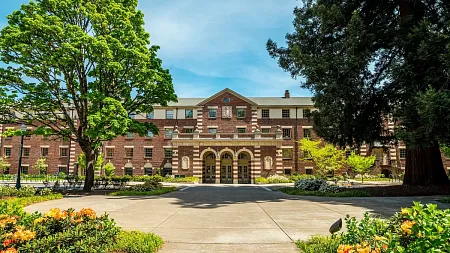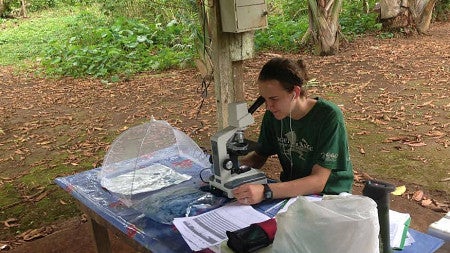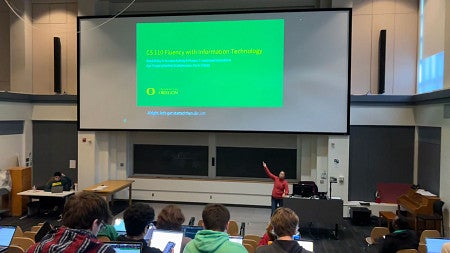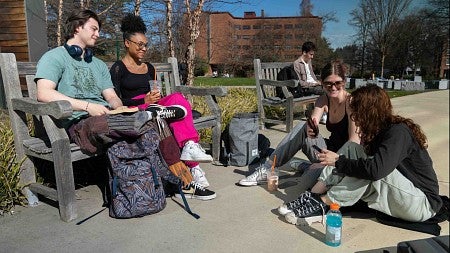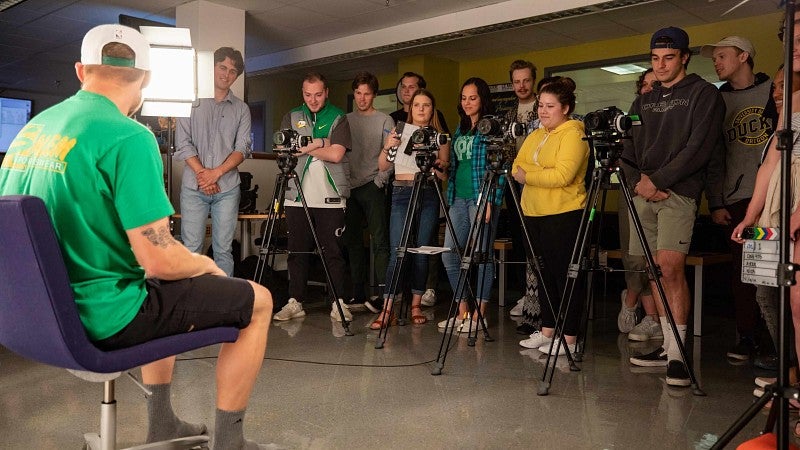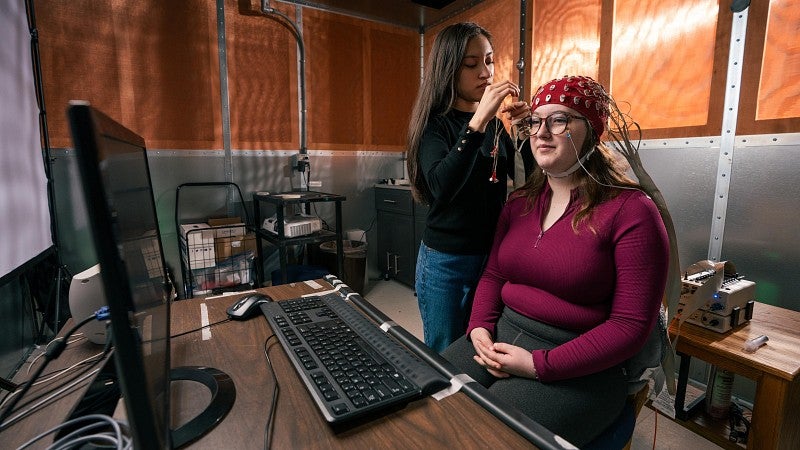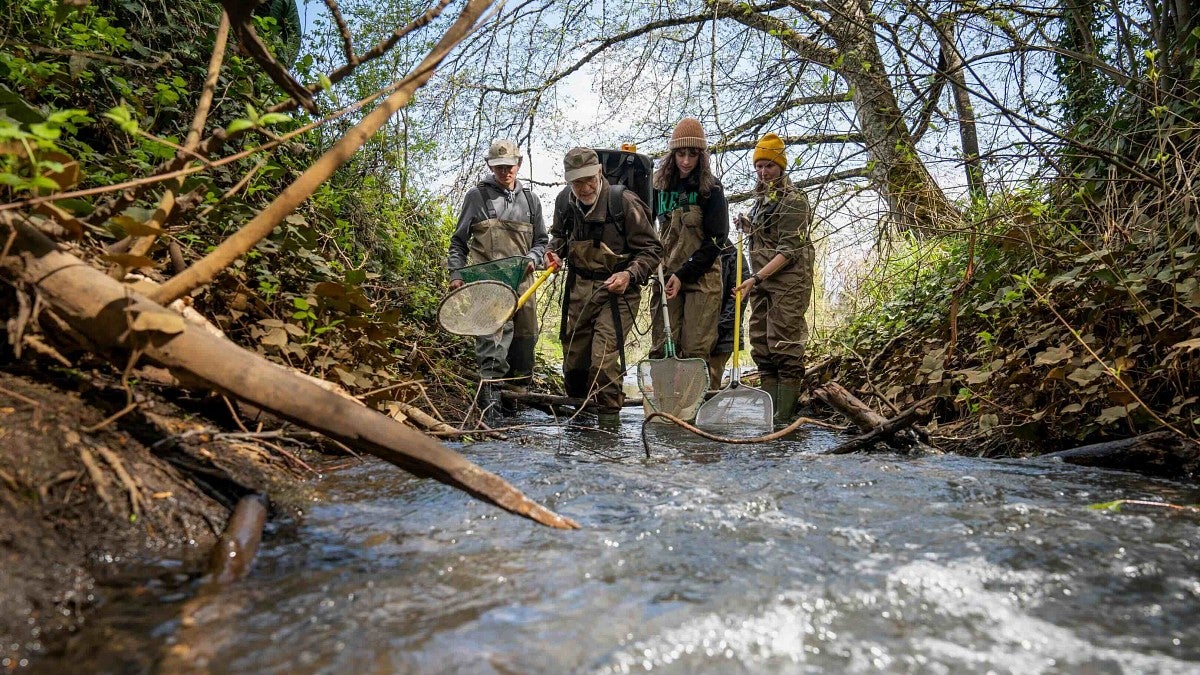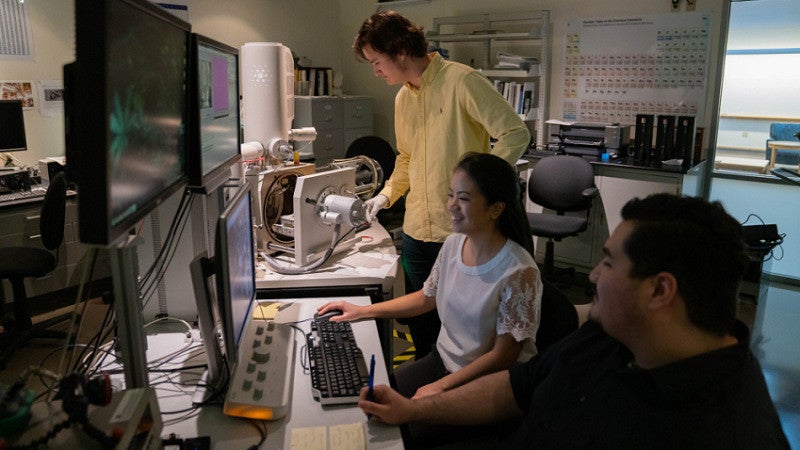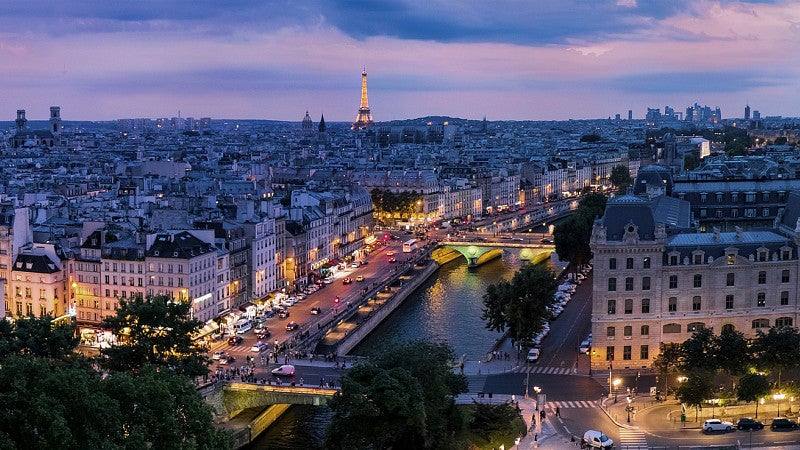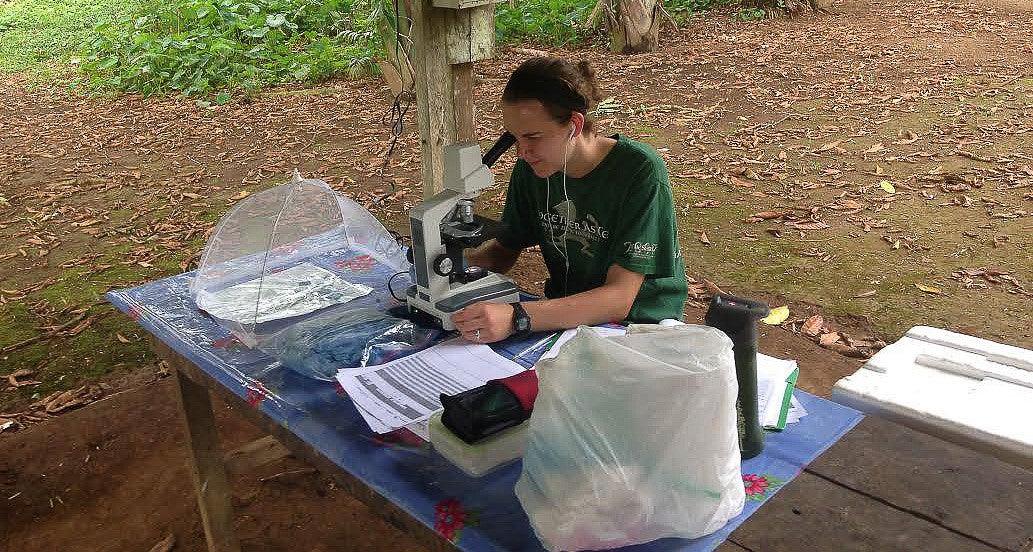
The Amazon Research Experience of a Lifetime
With many options for graduate school, Theresa Gildner ultimately chose the University of Oregon College of Arts and Sciences for its anthropology department because of its strong opportunities for fieldwork and the chance to publish impactful research under the mentorship of expert faculty members, such as Professor Josh Snodgrass.
As an anthropology doctoral student, Gildner worked orked in the Shuar Health and Life History Project, a long-running collaboration with a South American Indigenous tribe in southeastern Ecuador founded by Anthropology Professor Larry Sugiyama. It was an opportunity that took her to the Amazon, where she got experience conducting ethical field research. After graduating in 2018 with her PhD, she continues to apply what she learned as a Duck as a faculty member at Washington University in Missouri.
“The foundation for how I think about research was built at Oregon,” Gildner said. “The questions I’m asking now grew directly out of the training and collaborations I had there.”
News from CAS
All news »
We Love Our Supporters
Gifts to the College of Arts and Sciences can help our students make the most of their college careers. To do this, CAS needs your support. Your contributions help us ensure that teaching, research, advising, mentoring, and support services are fully available to every student. Thank you!
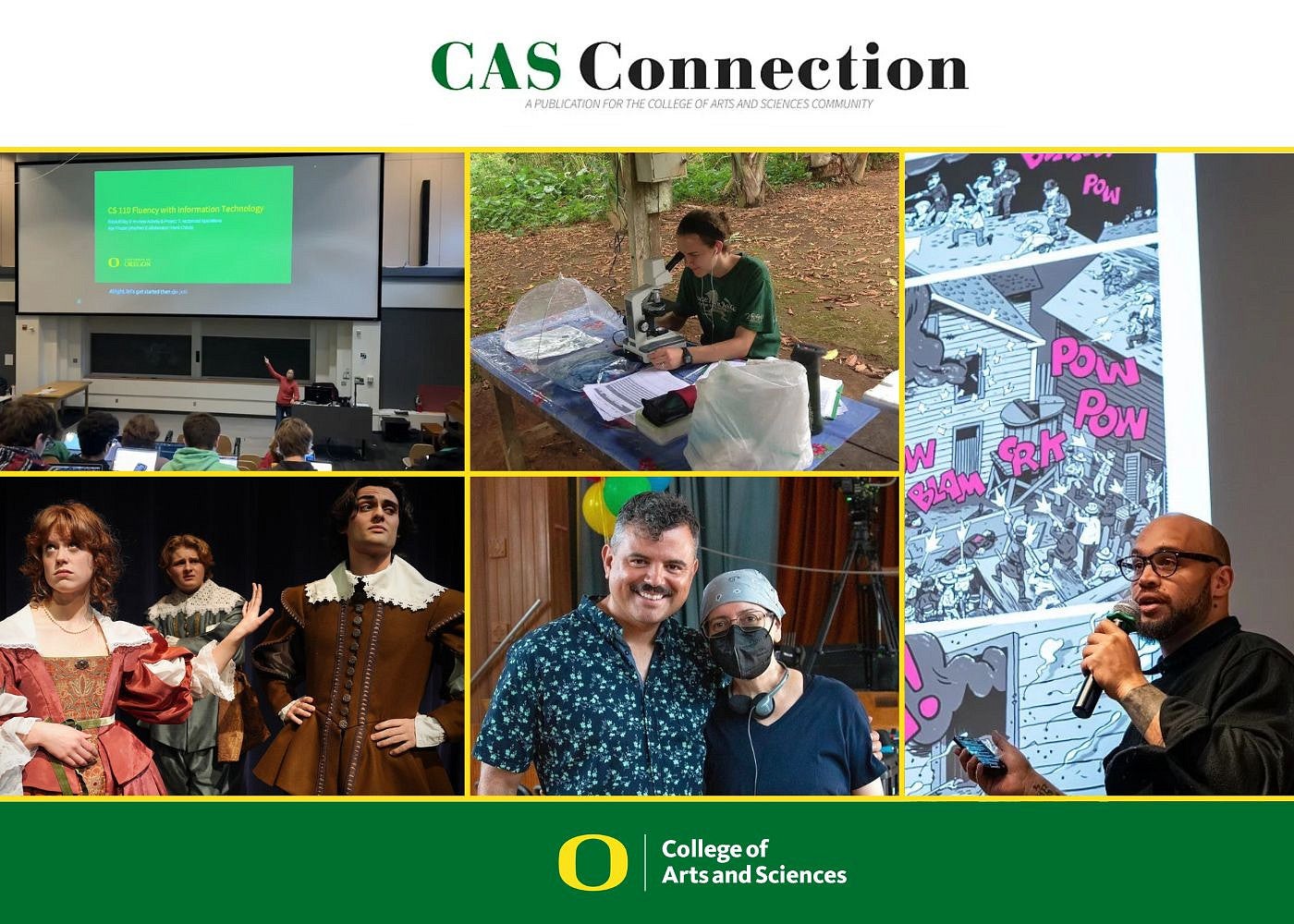
What’s Happening in CAS?
What happens when the food pyramid gets flipped? Schnitzer School of Global Studies and Languages Assistant Professor Hannah Cutting-Jones dives into the new food pyramid announced by the US Department of Health and Human Services, and the impacts of the new guidelines.
Also in the February CAS Connection issue, read how a two-year prestigious Oregon fellowship is bringing a professor's visions to life, an alum who is a tenure-track faculty member at Washington University continuing research she did at the UO, a 100-level computer science course teaching AI — and more.
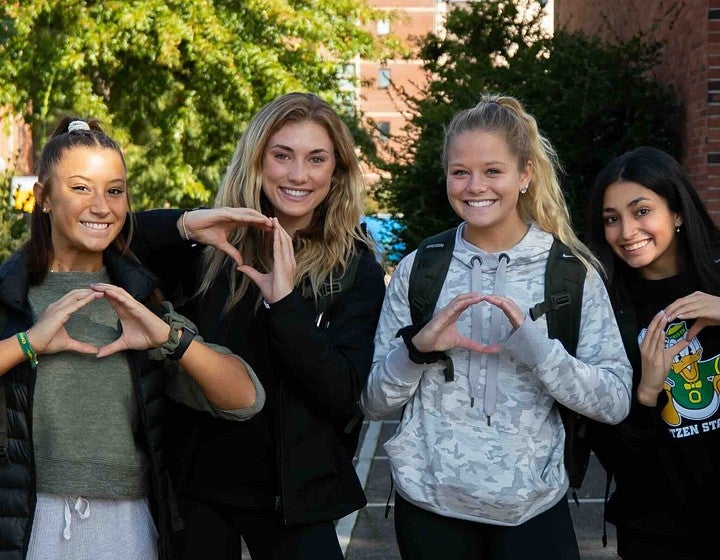
Undergraduate Studies
Wherever your academic goals eventually take you at the UO, all Ducks begin their journey with foundational courses in CAS. More than 60 percent of students go on to pursue a major in a CAS department or program. With more than 50 departments and programs, there’s an intellectual home for almost any interest, talent, or career aspiration.
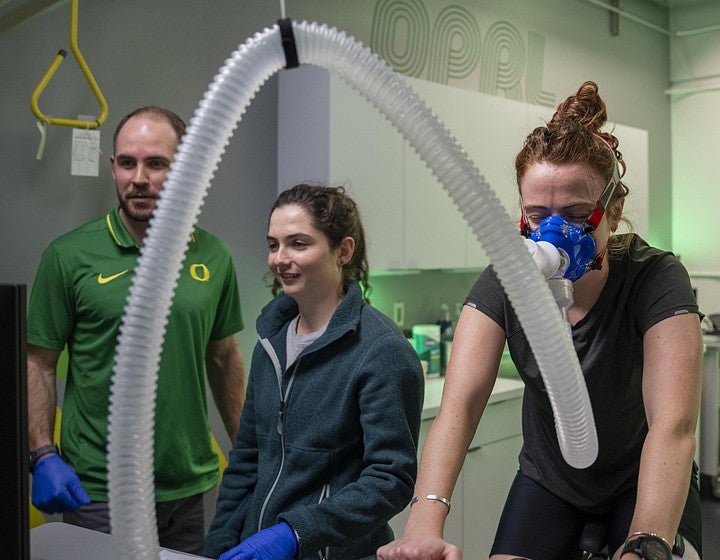
Graduate Studies
The College of Arts and Sciences offers more than 30 master's programs and more than 20 doctoral programs across a diverse range of disciplines. Both as contributors to research teams and through their own scholarship and teaching, our CAS graduate students are indispensable to the vitality of the UO academic mission.
Student Support Services
We provide our students with a variety of resources to help you thrive inside and outside the classroom. Through Tykeson Advising, we provide comprehensive academic and career advising from the start of your journey at the University of Oregon. Learn about career preparation and get assistance in selecting the very best classes. Connect with labs, libraries, IT and tutoring. Find your community on campus.
World-Class Faculty
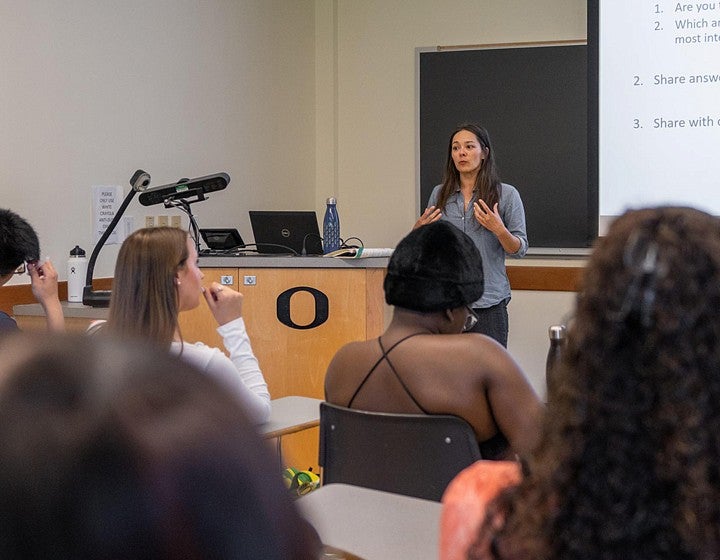
The College of Arts and Sciences faculty members are a driving force of the high-output, high-impact research activity that has earned the UO membership in the prestigious Association of American Universities (AAU). Our world-class faculty members are inspiring teachers.
Among them are five members of the American Academy of Arts and Sciences, four members of the National Academy of Sciences. They are committed to helping students discover their academic passion. Every day, they work to expand students’ intellectual horizons, preparing them for life after college with real-world knowledge and skills.
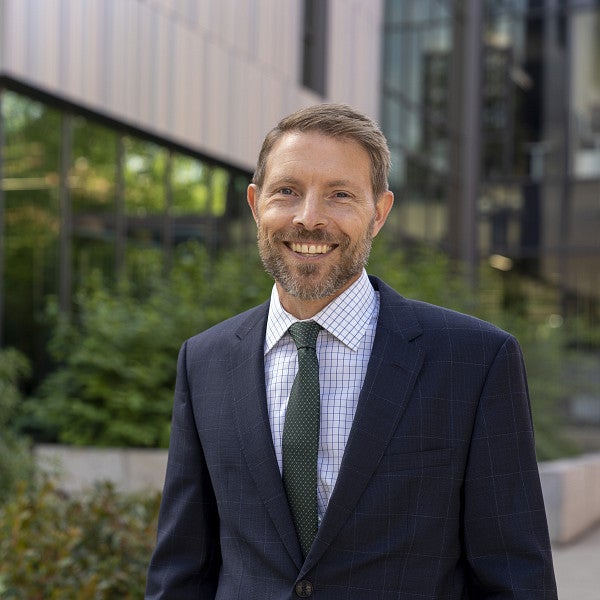
Meet our Dean
In the College of Arts and Sciences (CAS), we are committed to excellence in research and teaching, student success, and diversity, equity, and belonging.
A liberal arts education—one that offers a breadth of intellectual approaches and perspectives and depth in a major discipline—is the foundation to a purposeful life as a life-long learner, engaged citizen, and leader. The skills you will learn here—from written and verbal communication to analytical and quantitative reasoning, to compassion and understanding—are those that employers seek and will open the door to a wealth of opportunities.
You will find more than 50 majors and a multitude of minors within CAS, and seemingly endless opportunities for personal exploration and discovery. Whether you are an incoming first-year student, a grad student or a transfer student, you can map an exciting future and be part of a fun, warm, engaged liberal arts community here. Come join us. And go Ducks!
The College of Arts and Sciences includes:
Happening at CAS
7:00 p.m.
Please join Native American and Indigenous Studies for a lecture and book signing by Julian Brave NoiseCat on Coyote Steals the Salmon.
Julian Brave NoiseCat, an enrolled member of the Canim Lake Band Tsq'secen of the Secwepemc Nation in British Columbia, Canada, is a US American and Canadian writer, filmmaker, champion powwow dancer, and activist. He is a public thinker and advocate on issues of climate justice and Indigenous rights in North America, and the first Indigenous North American filmmaker ever nominated for an Academy Award for his film, Sugarcane. His book, We Survived the Night, was an instant national bestseller in Canada and an indie bestseller in the United States.
7:30–9:00 p.m.
The average person will speak 123,205,750 words in a lifetime. But what if there were a limit? Oliver and Bernadette are about to find out. Lemons Lemons Lemons Lemons Lemons is a tender and funny rom-com about what we say, how we say it, and what happens when we can’t say anything any more.
Credits: By Sam Steiner. Produced by special arrangement with Mónica Sánchez. Directed by Logan Love as a part of our Undergraduate Student Director.
Run time: The show is about an hour and a half long with no intermission.
Free tickets - general admission (first-come, first-serve).
12:30–3:30 p.m.
This symposium brings together scholars from the US, Singapore, and China to examine the evolving pathways of sustainable development in China. Focusing on the intersections of economic transformation, environmental governance, and social equity, it aims to foster critical dialogue on how sustainability is conceptualized, implemented, and contested across different regions and sectors. Through presentations and discussions, participants will reflect on China’s experiences in addressing climate change, urbanization, and development challenges, while situating them within broader global debates on sustainable development.
Event registration is required for participation:https://app.smartsheet.com/b/form/019b954562f17224bdc7a0231d1f3f2e
Event sponsors:
APRU Sustainable Cities and Landscapes Program, Global Studies Institute, Department of Geography, Department of Global Studies, Center for Asian and Pacific Studies.
7:30–9:00 p.m.
The average person will speak 123,205,750 words in a lifetime. But what if there were a limit? Oliver and Bernadette are about to find out. Lemons Lemons Lemons Lemons Lemons is a tender and funny rom-com about what we say, how we say it, and what happens when we can’t say anything any more.
Credits: By Sam Steiner. Produced by special arrangement with Mónica Sánchez. Directed by Logan Love as a part of our Undergraduate Student Director.
Run time: The show is about an hour and a half long with no intermission.
Free tickets - general admission (first-come, first-serve).

